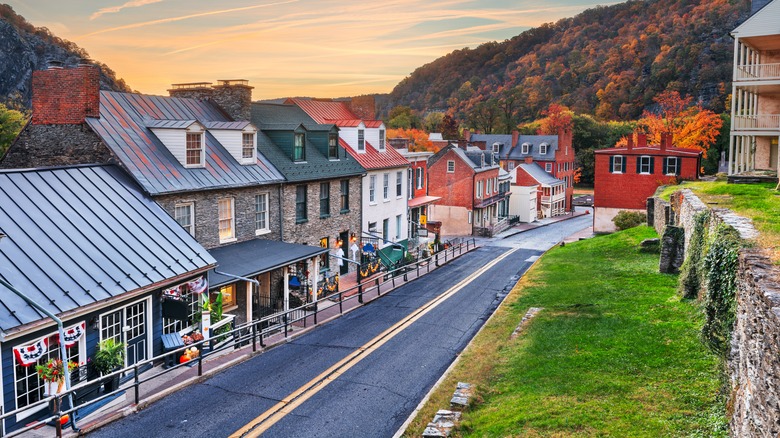Retirees Without A Mortgage Can Live On Social Security Alone In This Southern State
Nearly 69 million Americans get Social Security benefits each month, with over 61 million receiving retirement payments, according to the Social Security Administration. For 63% of recipients, Social Security makes up at least half their total income. For 27%, it's their only income source, according to Pew Research Center's analysis of 2022 data. The average monthly check for retired workers reached just $2,008.31 in August 2025. Even with significant changes to Social Security benefits, that number exposes a retirement security crisis and suggests that millions or retirees are struggling to get by.
But amid this squeeze, West Virginia stands out even among the cheapest states to retire as the place where mortgage-free retirees can not only get by on Social Security alone, but actually breathe a little. According to Bestplaces, its overall cost of living is about 20% below the national average. Meanwhile, the state's median household income, which the Census Bureau listed as less than $56,000 in 2023, reflects that low-cost reality.
It's one of the least populous states, too, with only about 1.77 million residents as of 2023. That gives its residents space to spread out and enjoy quiet roads and slow, tranquil mornings. The towns are closer-knit, and the affordability will get even sharper in 2026, when West Virginia becomes one of the states that exempt Social Security income.
How West Virginia's costs align with Social Security
The numbers work out simply: Social Security benefits beat West Virginia's living costs, leaving money left over each month. Housing expenses create this edge: According to Realtor.com's study of Median Social Security Benefits and Elder Index data, mortgage-free retirees pay an average of just $398 per month. For comparison, New Jersey retirees without mortgages face housing costs of $1,304 per month, while Massachusetts retirees pay $1,007.
West Virginia stays affordable across the board. Utility costs run 6% below national averages, according to RentCafe's 2025 analysis of the Council for Community and Economic Research (C2ER)'s Cost of Living Index data. Meanwhile, PowerOutage.us reports that residents pay around 15.22 cents per kilowatt-hour of electricity — less than the national average of 16.07 — while the state's monthly electric bills average around $163.
Like everywhere in the U.S., healthcare still takes a bite out of many retirement budgets, but the costs stay more reasonable than in other places. ValuePenguin pegged West Virginia's average health insurance cost at $955 in 2025. That's a 9% increase from 2024, but West Virginia still sits below extreme outliers like Alaska, where coverage jumped around 15% to $1,088. Healthcare remains a major retirement expense no matter where you live, but West Virginia's healthcare situation is actually getting better. The West Virginia Governor's Office announced in September 2025 that Governor Patrick Morrisey locked in $100 million per year through 2030 to improve residents' access to healthcare via the Rural Health Transformation Program.
What West Virginia retirement life actually looks like
West Virginia's natural beauty and recreation pull in active retirees. The state's four-season climate gives residents real tastes of both winter and summer weather, while staying temperate enough to enjoy outdoor activities all year. Charleston somehow manages to blend mountain views with what you'd actually want from a city: art spaces, decent restaurants, and small-metro buzz. Then there's the New River Gorge National Park, which throws whitewater rafting and hiking trails at you like it's trying to prove something.
Beckley leans hard into authentic Appalachian roots with attractions like the Tamarack Marketplace giving you real local culture alongside the practical stability of low living costs. For anyone weighing the best and worst states for retirement, West Virginia's scenery and affordability add up to something worth taking seriously.
But past the scenery and outdoor pull, there's peace of mind. The state's violent crime rate runs 27% below the national average, according to Safehome's study of FBI data. Property crime sits 38% lower. This secure environment pairs with another key fact — more than 20% of West Virginia residents are 65 and older according to Census Reporter. With a higher concentration of seniors than the national average, West Virginia fosters a retirement-friendly atmosphere with established senior communities and infrastructure already in place.


